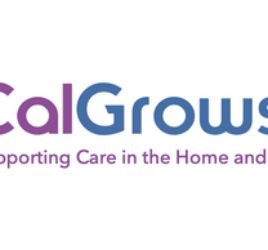
Canary Peers Announces Partnership with UCSF
This week Canary Peers announces our partnership with the University of California San Francisco (UCSF). UCSF has received funding for a 5-year National Institutes of Health research study on caregivers utilizing our Building Better Caregivers® program as the study intervention program. The study is open to caregivers living in rural areas of the United States who are caring for a loved one with dementia. UCSF is working with local organizations serving rural communities in 14 states to recruit caregivers into the study. Find out more here.
Dr. Veronica Yank, the principal investigator of the study mentions, “Rural caregivers of loved ones with dementia are some of the most isolated and stressed out. They often lack access to in-person training and resources because they are geographically isolated and need to stay close to their care partners. Having access to an online workshop they can do from home may improve their health and the health of their care partner. We are excited to work with Canary Peers to improve support for this vulnerable group of caregivers.”
The growing field of dissemination science helps to identity the opportunities and barriers to offering a program or intervention within a specific community, ecosystem or delivery system. Previously, our peer programs have been used as part of dissemination studies focused on subscribers of specific health plans or systems. Our commitment to this research furthers our understanding of unique populations, focusing specifically on caregivers who are living in rural areas of the United States.
This project has brought me back to my early days as a researcher in digital health. Early on we were looking at how digital health programs impact health outcomes and behavioral change. As the field has matured, understanding impacts on health outcomes and behavioral change are still important, but we also must know that digital programs can be successfully adopted, implemented, and maintained in health care delivery and community settings. Can they be offered at scale to the intended population? This study will help us understand that better.
The number of unpaid Caregivers in the US is now close to 50 million. Caregivers face several challenges including stress, social isolation, financial constraints, and the impact on their own health. The pandemic and the shutdowns have made their work that much harder and, in many cases, likely increased feelings of isolation for the caregiver as well as the person they are giving care too. Canary Peers is helping to combat that.
Canary Peers will be providing participants with our 6-week Building Better Caregivers program. The study investigators are eager to research how Building Better Caregivers impacts stress, depression, and social isolation. We know that using a digital intervention in a rural community won’t be without challenges, but we are eager to learn best practices from across the partners to develop strategies for using digital programs at scale in rural communities.
If you serve a rural population and are interested in helping with recruitment, click here or email the study principal investigator and project director at: V[email protected] and [email protected] .


